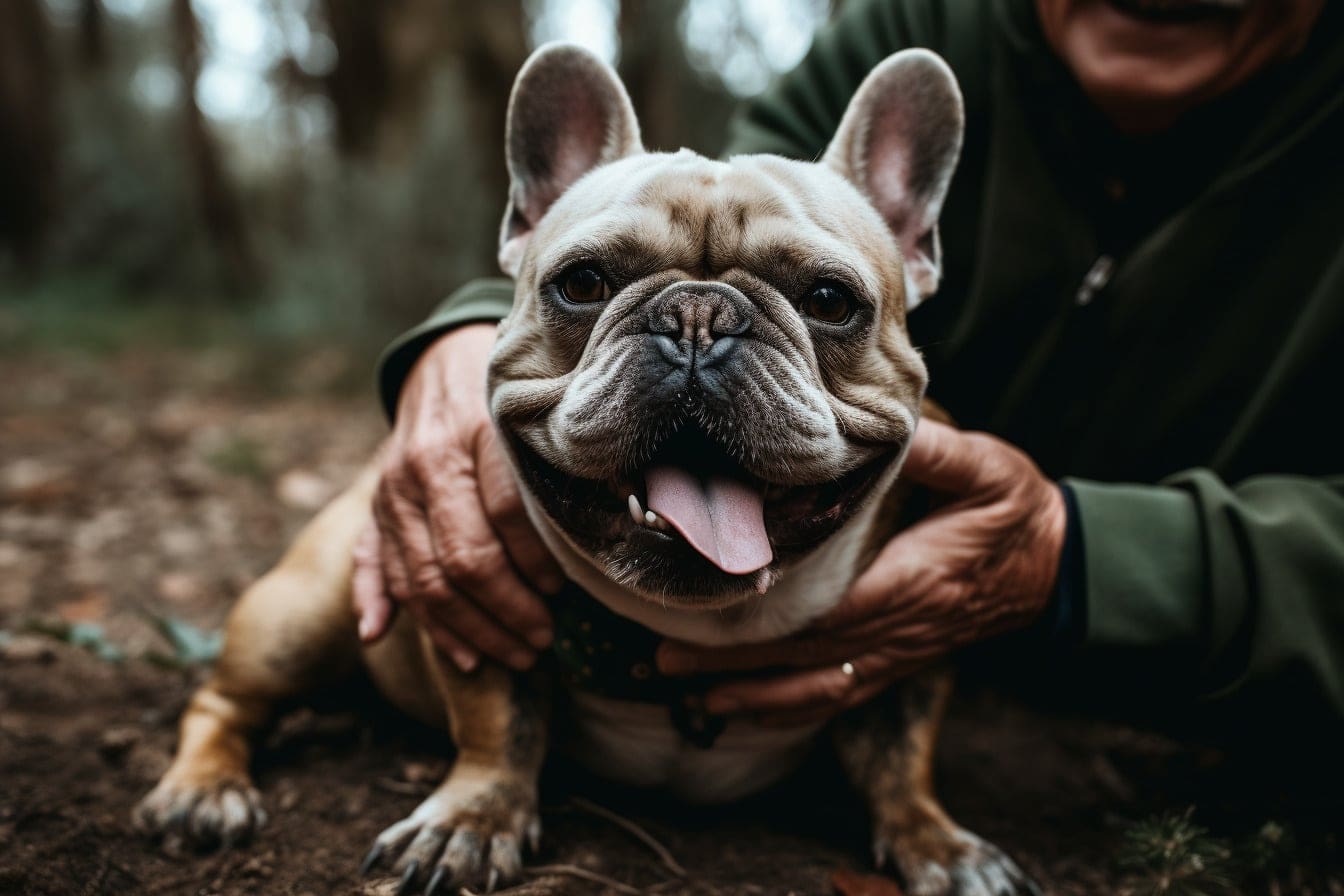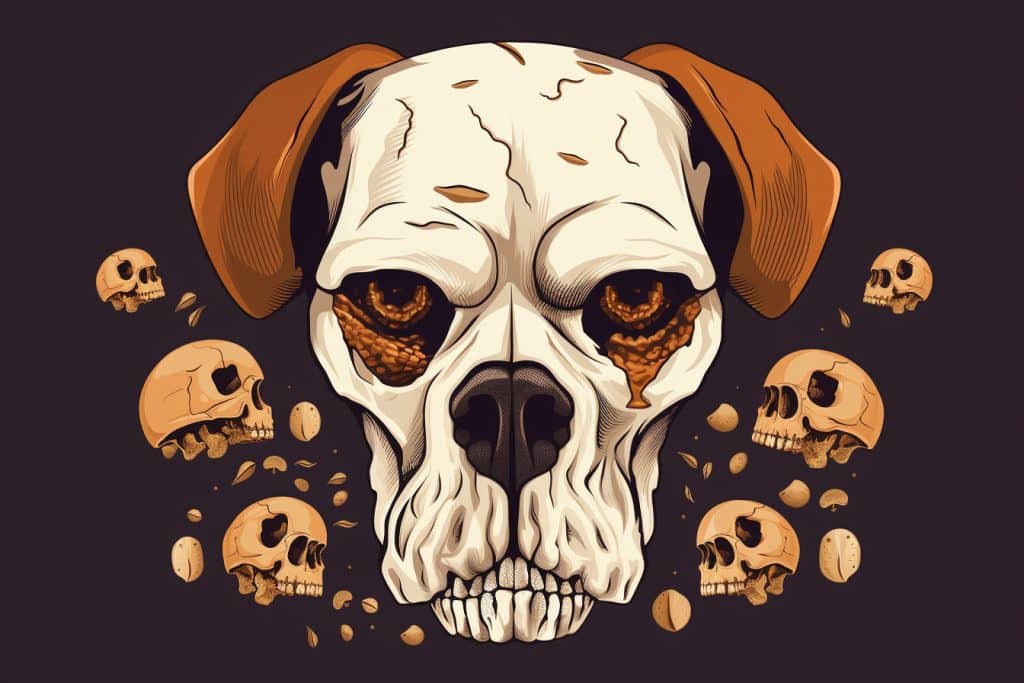Caring For Senior Dogs
Did you know that by the age of 7, most dogs are considered seniors? As dog lovers ourselves, we understand how important it is to provide our furry friends with the love and care they deserve as they grow older. Just like humans, senior dogs have unique needs and may require extra attention to ensure they live a happy and healthy life.
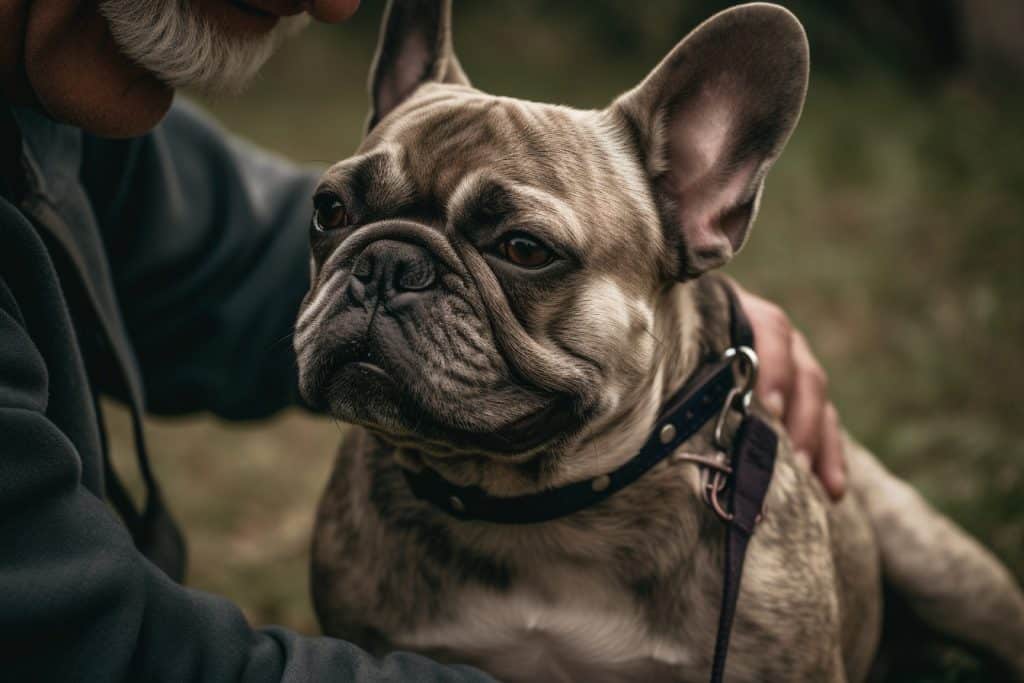
That's why we've put together this comprehensive guide on caring for senior dogs, so you'll be well-equipped to help your loyal companion enjoy their golden years.
In this article, we'll explore the signs of aging in dogs, creating a comfortable environment for them, tailoring nutrition and exercise routines to meet their changing needs, veterinary care and alternative therapies available for elderly pups, as well as bonding and enrichment activities that can strengthen your bond with your senior dog.
We believe that by providing compassionate care and understanding their unique requirements, you'll not only improve the quality of life for your beloved pet but also find joy in serving others through your actions. So read on to become better equipped at helping your four-legged friend thrive during their later years!
Spotting the Signs of Aging
It's tough to watch your dog show signs of aging, but being aware of these changes can help you provide the best possible care. Knowing what to look for and how to support their dog and it's needs is an essential part of caring for senior dogs,.
As our loyal companions enter their golden years, they experience physiological changes that may affect their energy levels, mobility, and overall health. By paying close attention and educating ourselves on senior dog wellness, we can ensure they continue to live a comfortable and enjoyable life.
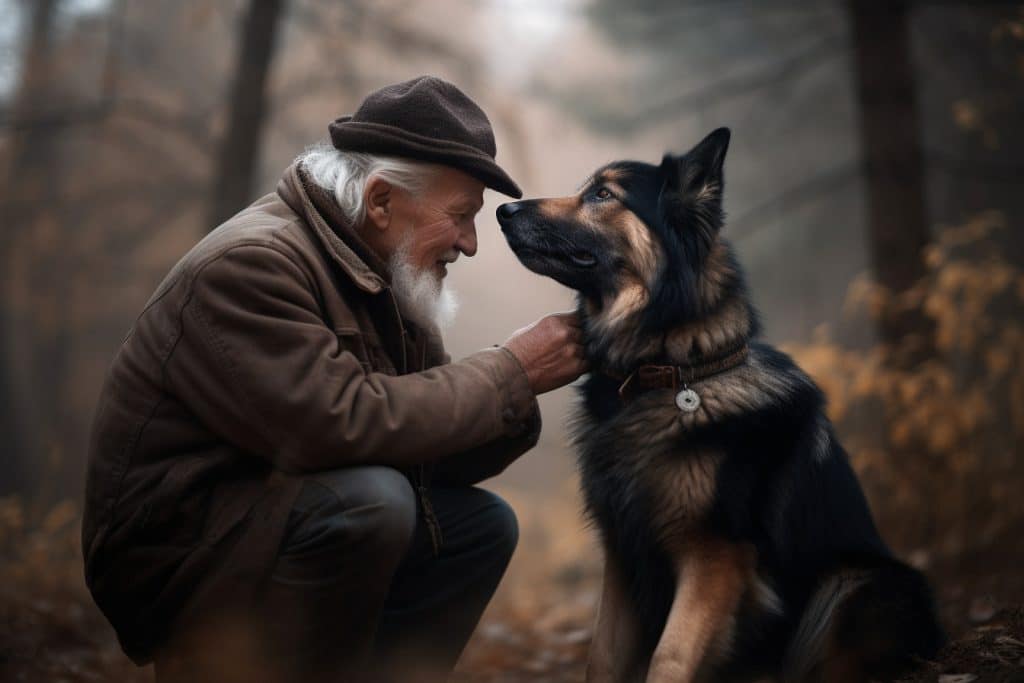
One key aspect of caring for senior dogs is recognizing the subtle signs of aging. These may include greying fur around the muzzle area, decreased hearing or vision capabilities, increased sleeping patterns, and a decrease in playfulness or enthusiasm for activities they once loved.
Old dog health tips often suggest keeping an eye out for any sudden changes in weight (either gain or loss), as this could indicate an underlying issue requiring veterinary intervention. Additionally, monitor your pet's mobility as stiffness or difficulty moving could signal arthritis or other joint-related issues.
As conscientious pet parents who want nothing but the best for our four-legged friends throughout their lives, it's important to make adjustments in response to these age-related changes. Providing a cozy environment for your old friend will be discussed next—so stay tuned!
A Cozy Environment for Your Old Friend
You absolutely won't believe how much of a difference creating a cozy environment can make in your older dog's life! Caring for senior dogs, starts with recognizing that your dog may need extra support to stay comfortable and safe as they age. One essential element is providing comfortable dog beds for them to rest on, especially if they're experiencing joint pain or arthritis.
As dogs get older, they may also have difficulty jumping onto furniture or climbing stairs, so consider investing in dog ramps and stairs to help them access their favorite spots around the house.
In addition to comfy sleep spaces and accessibility aids, senior dog safety at home should be a top priority. To create a secure environment for your aging pet, be sure to keep floors clear of clutter and slippery surfaces that could cause them to trip or fall.
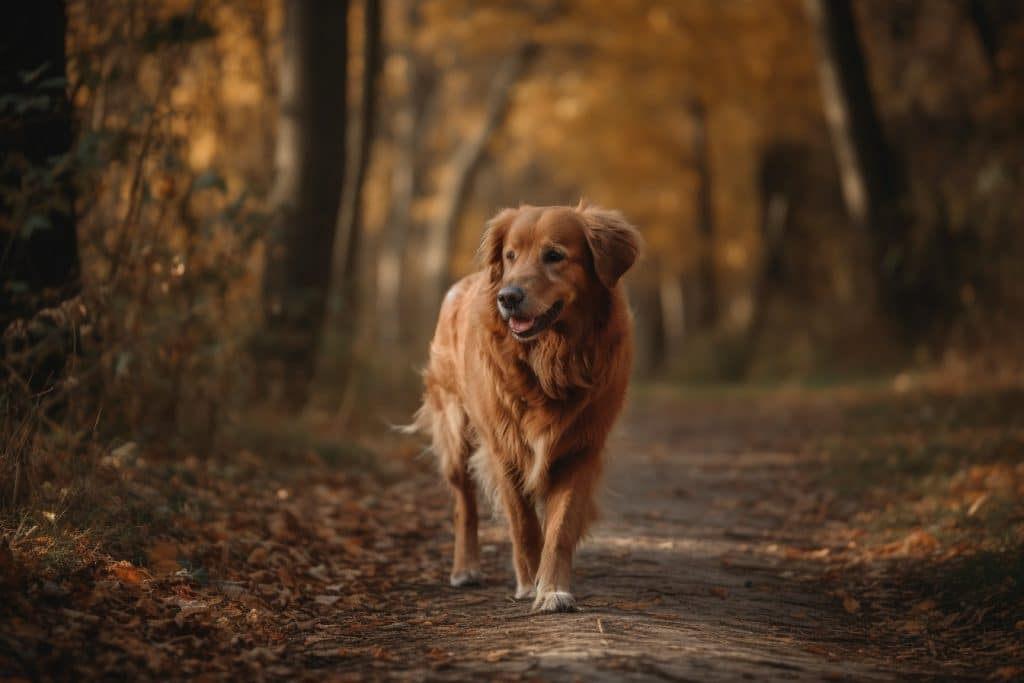
Regularly check the house for potential hazards such as electrical cords that might pose chewing temptations, and ensure all medications are securely stored out of reach. Providing age-appropriate dog toys can not only stimulate their minds but also give them an outlet for any lingering energy they might have.
Caring for senior dogs, isn’t about physical comfort – it’s important to nurture their emotional well being too! Creating a calm space where your old friend can retreat when feeling overwhelmed or tired will go a long way in helping them feel relaxed and content.
Remember, our pets thrive on routine so try maintaining consistent feeding times, grooming schedules, and bedtime rituals. With these simple changes combined with tailored nutrition & exercise plans designed specifically for their needs (which we'll discuss next), you will truly enhance the quality of life for your beloved senior companion while keeping them happy, healthy, and safe throughout their golden years , ensuring they continue to thrive and maintain a strong bond with you and your family.
By taking the time to implement these strategies and provide the necessary care, you will not only extend your senior pet's lifespan but also create lasting memories filled with love, joy, and companionship.
Tailored Nutrition & Exercise
As your furry friend enters their golden years, adjusting their diet and exercise routine becomes crucial for keeping them spry and content.
A well-thought-out senior dog diet is essential for maintaining a healthy weight, managing chronic health issues, and promoting overall vitality. Similarly, aging dog exercise is vital not only to keep them physically fit but also for mental stimulation for senior dogs.
To provide tailored nutrition and exercise for your senior pooch, consider the following tips:
– Choose a high-quality senior dog food that meets their specific nutritional needs.
– Add in appropriate senior dog supplements such as glucosamine or omega-3 fatty acids to support joint health for older dogs.
– Modify their activity levels based on any physical limitations due to age or canine arthritis management.
– Incorporate low-impact activities like swimming or gentle walks into their daily routine.
– Engage them with interactive toys or puzzle feeders to encourage mental stimulation for senior dogs.
By taking these steps, you'll be better equipped to manage your beloved pet's changing needs as they grow older. Remember that each dog is unique; what works best for one may not be the perfect solution for another.
Stay observant of your furry companion's behavior and energy levels so you can make adjustments when necessary. This mindful approach will help ensure that both you and your four-legged friend continue to enjoy many happy moments together as they gracefully age.
Now let's move on to discussing some important aspects of vet care & alternative therapies that can further enrich the lives of our cherished seniors.
Vet Care & Alternative Therapies
Don't you want the best for your aging furry friend? Regular vet visits and alternative therapies can make a world of difference in their golden years. Keeping up with senior dog check-ups is essential to monitor their health and catch any potential issues early on.
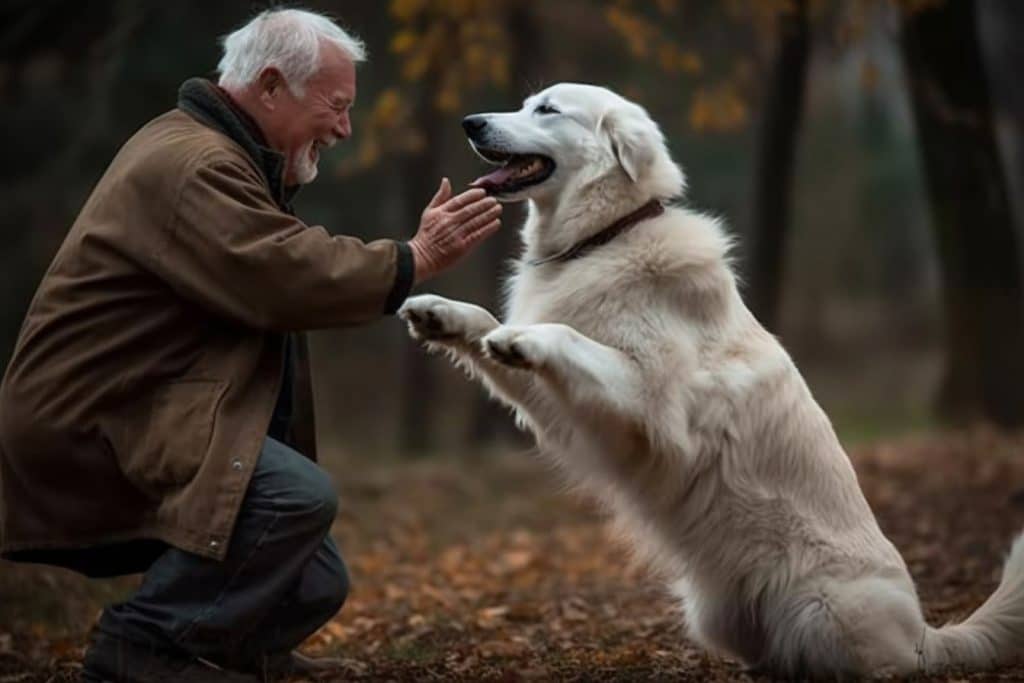
Exploring alternative therapies like canine massage therapy, dog acupuncture benefits, hydrotherapy for dogs, and canine physiotherapy can complement traditional veterinary care, helping to keep our beloved companions comfortable and happy.
Canine massage therapy has been proven to improve circulation, reduce pain associated with arthritis or other joint issues, and promote relaxation in older dogs.
Dog acupuncture benefits include pain relief from various conditions such as hip dysplasia or chronic back problems. Hydrotherapy for dogs helps build muscle strength without putting undue stress on joints – perfect for geriatric pups who might have difficulty with regular exercise routines.
Canine physiotherapy focuses on restoring mobility and function through targeted exercises tailored specifically to each dog's needs.
Aside from these physical treatments, geriatric dog enrichment plays a key role in keeping our senior friends mentally stimulated and engaged as they age. This will not only help them stay sharp but also provide an opportunity for us to bond with them during this special stage of life.
So, let’s embrace the wisdom that comes with age by helping our furry family members live out their golden years with grace and dignity – after all, they deserve nothing less than the best care possible! Next up: let's talk about bonding & enrichment in those precious golden years together!
Bonding & Enrichment in Golden Years
Cherishing those golden years with your aging canine companion calls for engaging activities that not only strengthen your bond but also keep their minds sharp and active.
Senior dog activities should be tailored to suit their age and physical abilities, while still providing the mental stimulation they need. Low-impact exercises for dogs can help maintain muscle tone and flexibility without causing undue stress on joints or exacerbating existing health issues.
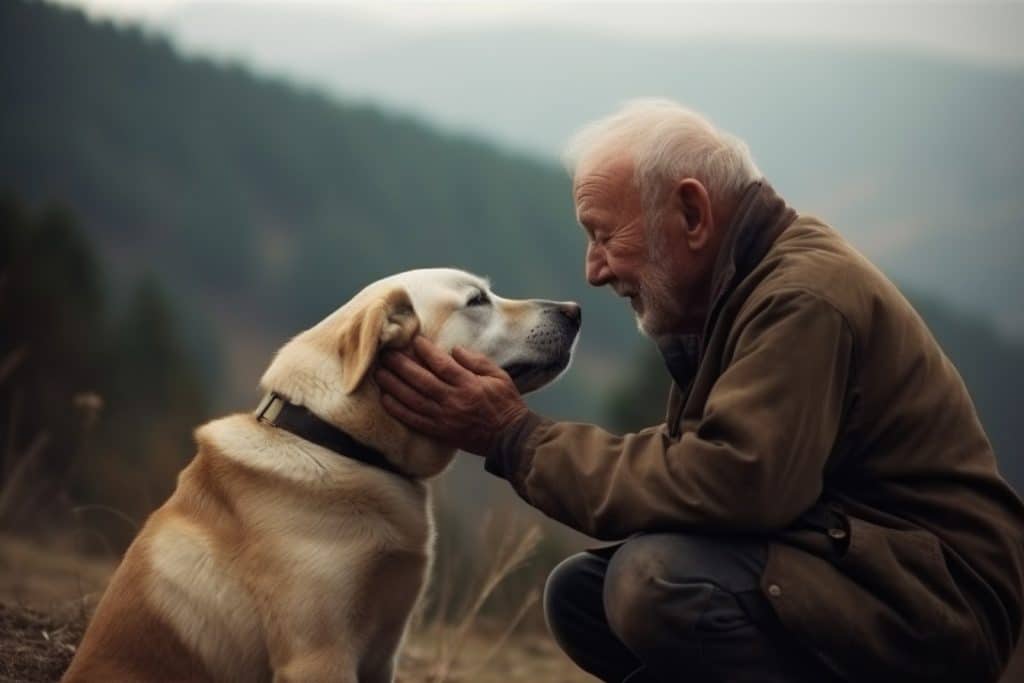
Dog-owner bonding activities are essential for keeping your senior dog's cognitive health in check as they age. Consider incorporating age-appropriate dog toys that challenge them mentally, such as puzzle games or treat-dispensing toys. These can provide hours of entertainment and engagement,
encouraging problem-solving skills and preventing boredom which is crucial for maintaining cognitive health in aging dogs.
It's never too late to introduce new experiences to your furry friend, whether it's exploring a new park or trying out a gentle form of obedience training – this will help keep their minds sharp and spirits high.
Remember, being patient with your older pup is key during these interactive moments together; always praise them when they participate successfully to foster their sense of accomplishment. As we continue discussing caring for senior dogs, let's delve into the importance of understanding our pets' thoughts during these twilight years.
Thoughts
It's vital to grasp what's going on in your aging pup's mind as they navigate their golden years. Caring for senior dogs, requires not only understanding their physical needs but also being sensitive to their emotional and cognitive well being.
As our furry friends age, it becomes even more important to ensure they feel loved and secure, by providing them with an environment that caters to their changing needs such as proper senior pet nutrition, dental care for elderly dogs, and appropriate mobility aids.
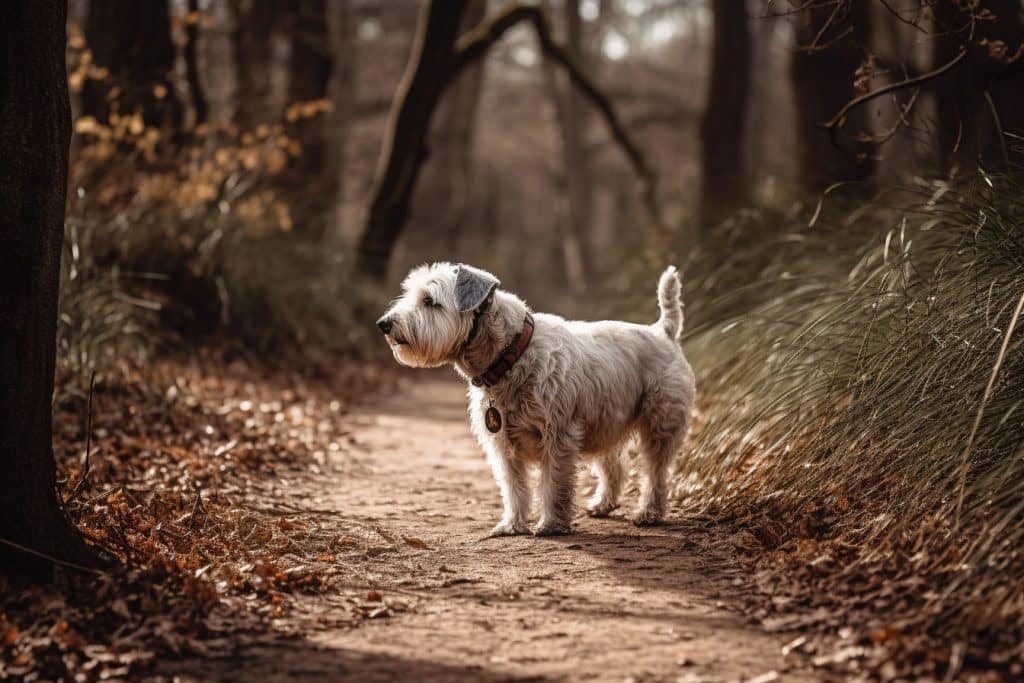
As your dog advances in age, it is essential to pay close attention to any changes in behavior or habits which may indicate underlying health issues or cognitive decline. Regular veterinary check-ups are crucial in monitoring your senior dog's overall health and addressing potential problems early on.
In addition to this, implementing a daily routine for exercise and mental stimulation can help keep your dog sharp and active while also serving as crucial canine dementia prevention strategies. Don't forget about following senior dog feeding guidelines that cater specifically to an older dog’s nutritional requirements.
Making small adjustments such as offering comfortable bedding options, providing easy access to food and water bowls using raised stands, or investing in senior dog mobility aids can improve the quality of life for your aging companion.
Remember that patience is key when dealing with the natural progression of aging; be prepared for slower response times and reduced energy levels from your beloved pet. By staying committed to creating a supportive atmosphere filled with love and enrichment activities tailored specifically towards caring for senior dogs, you'll be helping them make the most of their precious golden years together with you.
In the end, we can't turn back the hands of time for our furry friends. However, by providing a cozy environment, tailored nutrition and exercise, proper vet care, and plenty of bonding and enrichment activities, we can help our senior dogs live out their golden years with comfort and happiness.
Let's remember to cherish every moment with our aging companions. They’ve been there for us through thick and thin – it's only right that we return the favor.
FAQs
What age is considered elderly for a dog?
A dog is typically considered elderly when they reach the age of 7 to 10 years, depending on their breed and size. Smaller breeds tend to have a longer life expectancy and are considered senior around 10 years, while larger breeds may be considered elderly at 7 years. “Caring for senior dogs” involves recognizing the signs of aging and adjusting their care accordingly to ensure they remain healthy and comfortable.
What is the best way to take care of a senior dog?
The best way of caring for senior dogs is to provide them with a tailored diet, regular exercise, mental stimulation, and appropriate veterinary care. A senior dog diet is crucial for maintaining their overall health. Keep an eye out for dog old age symptoms and understand what to expect with an aging dog. Regular vet visits help identify and deal with any problems early on. Additionally, mental stimulation for senior dogs, a comfortable living environment, and support from senior dog care facilities, if necessary, can contribute to their well-being.
What do senior dogs need most?
Senior dogs need a combination of proper nutrition, exercise, mental stimulation, and healthcare. Caring for senior dogs requires understanding the physiological changes they undergo and ensuring their needs are met. Providing a comfortable living space, how to make an old dog comfortable, and addressing any health concerns are essential aspects of senior dog care.
What to expect from a 14-year-old dog?
At 14 years old, a dog is well into their senior years. You may notice signs of aging such as reduced mobility, changes in behavior, and potential health issues. Caring for senior dogs at this age may involve managing chronic conditions, adjusting their exercise routine, and providing mental stimulation. It's common for owners to feel “my dog is getting old, and it makes me sad,” but focusing on their quality of life and senior pet care can make a significant difference.
Remember, caring for senior dogs is about being initiative-taking, understanding their needs, and ensuring they receive appropriate care to enjoy their golden years.

